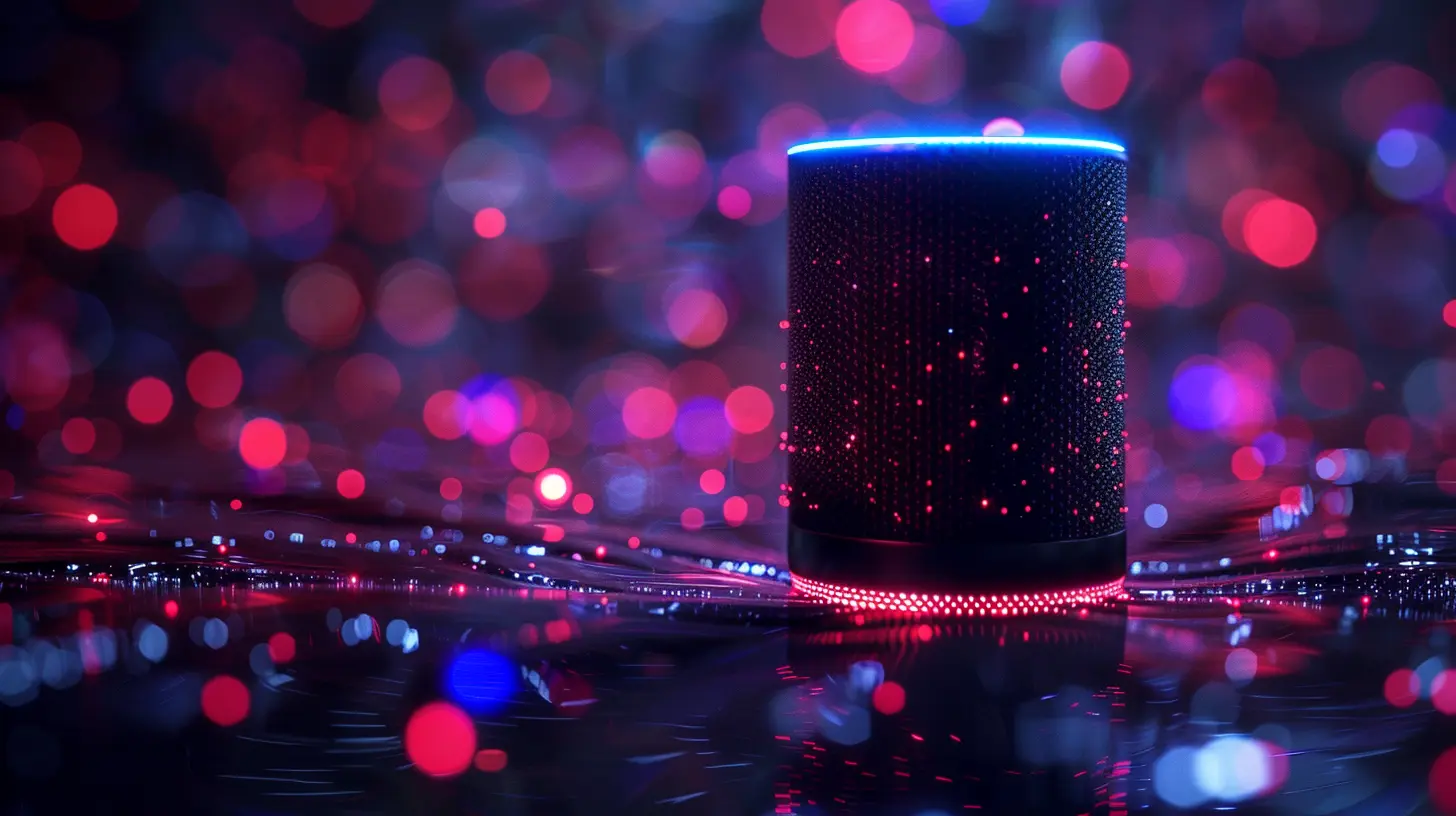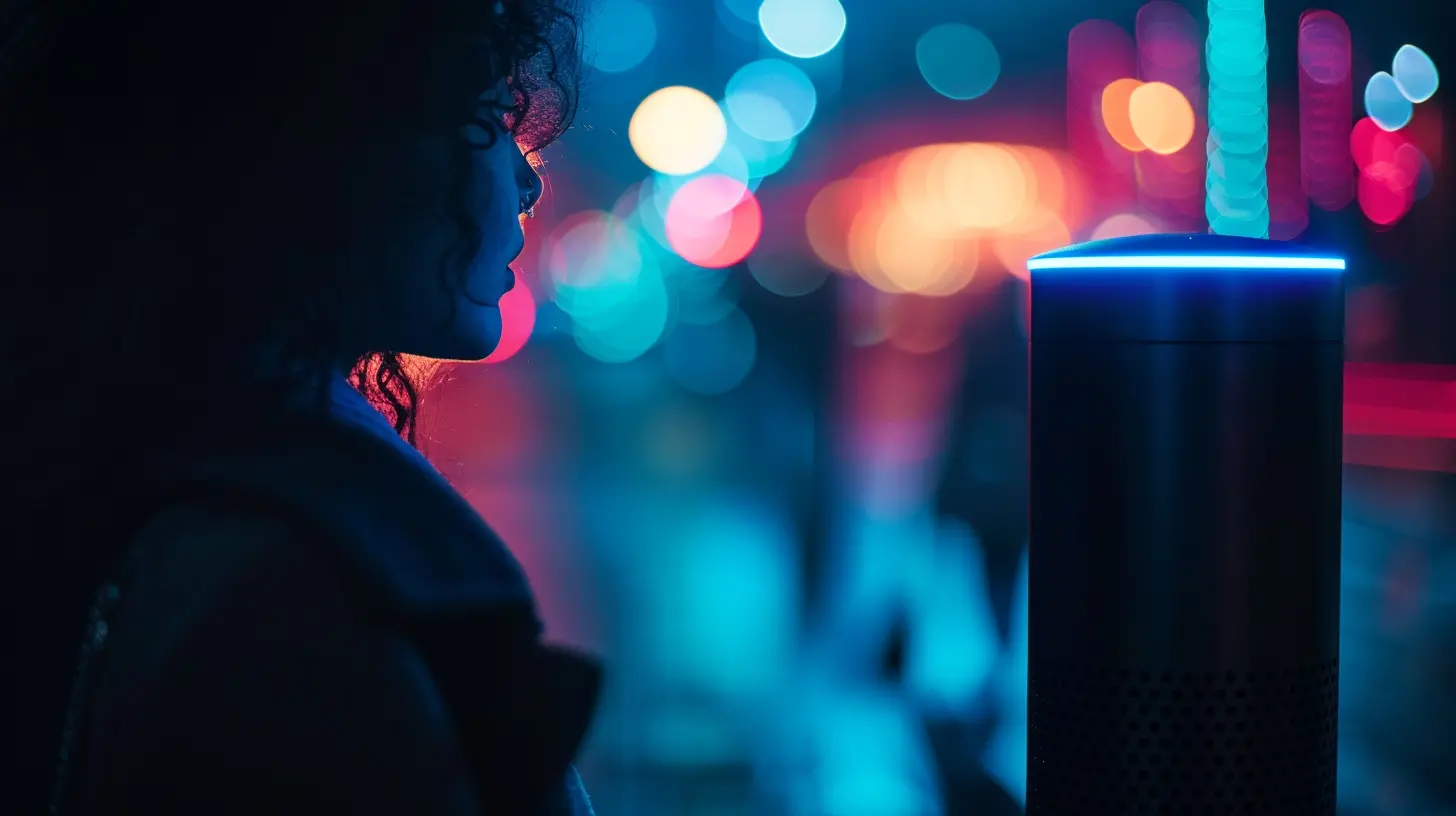Exploring the Future of Voice Recognition in Gadgets
4 July 2025
Voice recognition has stepped out of the realm of sci-fi and firmly planted itself into our daily lives. From asking Alexa to play your favorite playlist to dictating notes on your phone while you’re on the go, voice tech is changing how we interact with gadgets. But guess what? This is just the beginning. As voice recognition software grows smarter, faster, and more intuitive, the future holds some seriously cool (and slightly mind-blowing) innovations.
So, what exactly is next for voice tech in our gadgets? Let’s break it down in plain English, talk about how it’s already evolving, and peek into the not-so-distant future.
What Is Voice Recognition, Really?
Alright, let’s get this out of the way first. Voice recognition—or speech recognition—simply means the ability of a device to understand and process the human voice. Sounds simple, right? But behind the scenes, it involves complex algorithms, natural language processing (NLP), machine learning (ML), and a ton of training data.Put another way, voice recognition is like teaching your gadgets to understand you as well as your best friend does—and sometimes, even better (no offense to your BFF!).
A Quick Look at Where We Stand Today
Think of voice recognition now as a toddler who’s just learned to speak full sentences. It’s cute, useful, improving every day—but not quite perfect.Popular Gadgets Using Voice Recognition
Let’s count some of the big players:- Smartphones – Siri, Google Assistant, Bixby
- Smart Speakers – Amazon Echo, Google Nest
- Smart TVs – Voice search on Netflix? Yes, please.
- Wearables – Voice commands on smartwatches for fitness tracking, messaging, and more
- Smart Home Devices – Thermostats, lights, locks, and fridges that respond to your voice
These devices are doing a decent job. You can set reminders, control music, ask for weather updates, and even send texts—all hands-free. Not too shabby, right?
But there’s a lot more in store.
The Real Game-Changer: AI and Machine Learning
Here comes the engine behind the magic—artificial intelligence and machine learning. Without these, voice recognition would be like teaching a parrot to say phrases without really understanding what they mean.ML systems analyze massive amounts of voice data to learn how people speak, including accents, slang, tone, and even emotion. Over time, they're trained to understand natural speech in a way that feels—well—natural.
This means that future gadgets won’t just recognize your words; they’ll understand what you mean.
What’s Coming Next? Here's the Juicy Stuff
So, we’ve warmed up. Now let’s dig into the future. Voice recognition in gadgets is about to level up in some seriously impressive ways.1. Context-Aware Voice Assistants
Imagine asking your smart assistant, “Book my usual hotel for next weekend,” and it knows:- Where you usually stay
- What weekend you meant
- That you're traveling for work again
That’s context awareness. Voice assistants of the future will remember your preferences, past behavior, and even current activities. No need to repeat yourself or clarify like you're talking to a machine.
Context makes it feel like your gadgets "get" you—and that’s the dream, isn’t it?
2. Emotional Intelligence
This one’s wild. Future gadgets could actually detect emotions in your voice—and respond accordingly. Stressed? Your smart speaker might lower the lights and play chill vibes. Sound frustrated while asking your fridge what’s for dinner? It suggests takeout.Not creepy. Just helpful. Emotional intelligence in voice tech could make our interactions with gadgets more human—which is kind of the point.
3. Hands-Free Everything
We're already using voice commands to control certain gadgets, but get ready for a massive leap.We’re talking:
- Controlling your car completely by voice
- Operating kitchen appliances hands-free while cooking (because raw chicken hands and touch screens don’t mix)
- Adjusting office lighting, temperature, and meetings settings with a word
Voice will become the universal remote for… everything.
4. Multilingual and Accent-Tolerant Gadgets
Let’s face it: voice tech hasn't always been kind to those with strong accents or who speak more than one language. But that’s changing fast.Soon, devices will understand dozens of languages—and switch between them seamlessly. So if you speak Spanglish or flip between Hindi and English, your device won’t just cope. It will thrive.
This is a huge leap for inclusivity and global usability.
5. Voice Biometrics for Security
Say goodbye to passwords. (Seriously, please.)Voice is unique—like a fingerprint. Future gadgets will use your voice to authenticate your identity, granting access to personal data, smart home devices, even bank accounts.
It’s safer, faster, and hey—you don’t need to remember your voice, do you?
6. Silent Voice Recognition
Yep—this is real. Scientists and developers are working on tech that detects subvocal speech, meaning you don’t even need to speak out loud. Just move your lips slightly or form the words in your throat, and the gadget gets the message.Imagine whispering commands to your watch during a meeting. Stealth mode!
Industries That’ll Be Rocked by Voice Tech
This isn’t just about making life easier at home. Voice recognition is shaking up entire industries.Healthcare
Doctors can dictate notes directly into patient files without lifting a pen. Nurses can control equipment hands-free. And patients with mobility issues can access care simply by speaking.Automotive
Cars are evolving into voice-first control centers. From navigation to climate control, soon your entire driving experience will be managed by your voice—keeping your hands where they belong: on the wheel.Customer Service
We already talk to bots now, but they’re about to get way smarter. Voice AI will handle complex customer service calls, booking requests, and even tech support, reducing wait times and boosting satisfaction.Education
Virtual classrooms with built-in voice recognition tools can help kids with learning disabilities, language learners, or just anyone who prefers talking over typing.The Challenges We Still Need to Tackle
Of course, it’s not all sunshine and rainbows. Voice recognition tech is powerful, but it’s got its growing pains.Privacy Concerns
Any gadget that listens all the time raises eyebrows. Users want to know:- Who’s listening?
- Where is my voice data going?
- How is it being used?
Privacy laws are catching up, but manufacturers need to be transparent and give users control.
Background Noise
Even the best systems struggle in noisy environments. Ever tried talking to your phone in a crowded bar? Yeah, good luck with that. Future tech aims to improve noise filtering and better isolate your voice—like noise-canceling headphones, but in reverse.Misinterpretation
We've all had those “That’s not what I said!” moments. Improving accuracy, especially in diverse languages, dialects, and accents, is still a work in progress.Final Thoughts: Voice Is the New Touch
Let that sink in. Just like we moved from keyboards to touchscreens, we’re now shifting from touch to voice. It’s more natural, more intuitive, and just plain cooler. Voice tech won’t just be a feature; it’ll be the default way we interact with gadgets.As hardware gets smarter and AI keeps learning, we’re heading into a future where our daily tools truly feel like assistants—not just machines.
So next time you ask your smart speaker to turn off the lights, remember: it's not just responding—it's evolving.
all images in this post were generated using AI tools
Category:
Technology InnovationAuthor:

Adeline Taylor
Discussion
rate this article
2 comments
Violet McCord
Voice recognition will redefine human-computer interaction, enabling seamless communication and enhanced user experiences.
November 15, 2025 at 11:57 AM

Adeline Taylor
Absolutely! Voice recognition is set to transform how we interact with technology, making it more intuitive and user-friendly.
Soraya Bowers
Voice recognition is a game-changer in tech. It's exciting to see how it enhances user experience, but accuracy and privacy must remain priorities.
July 22, 2025 at 2:36 AM

Adeline Taylor
Thank you for your insights! Balancing accuracy and privacy is indeed crucial as we navigate the future of voice recognition technology.


